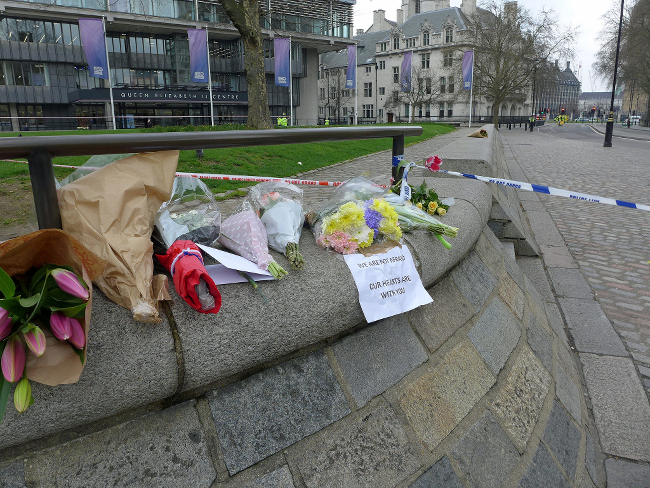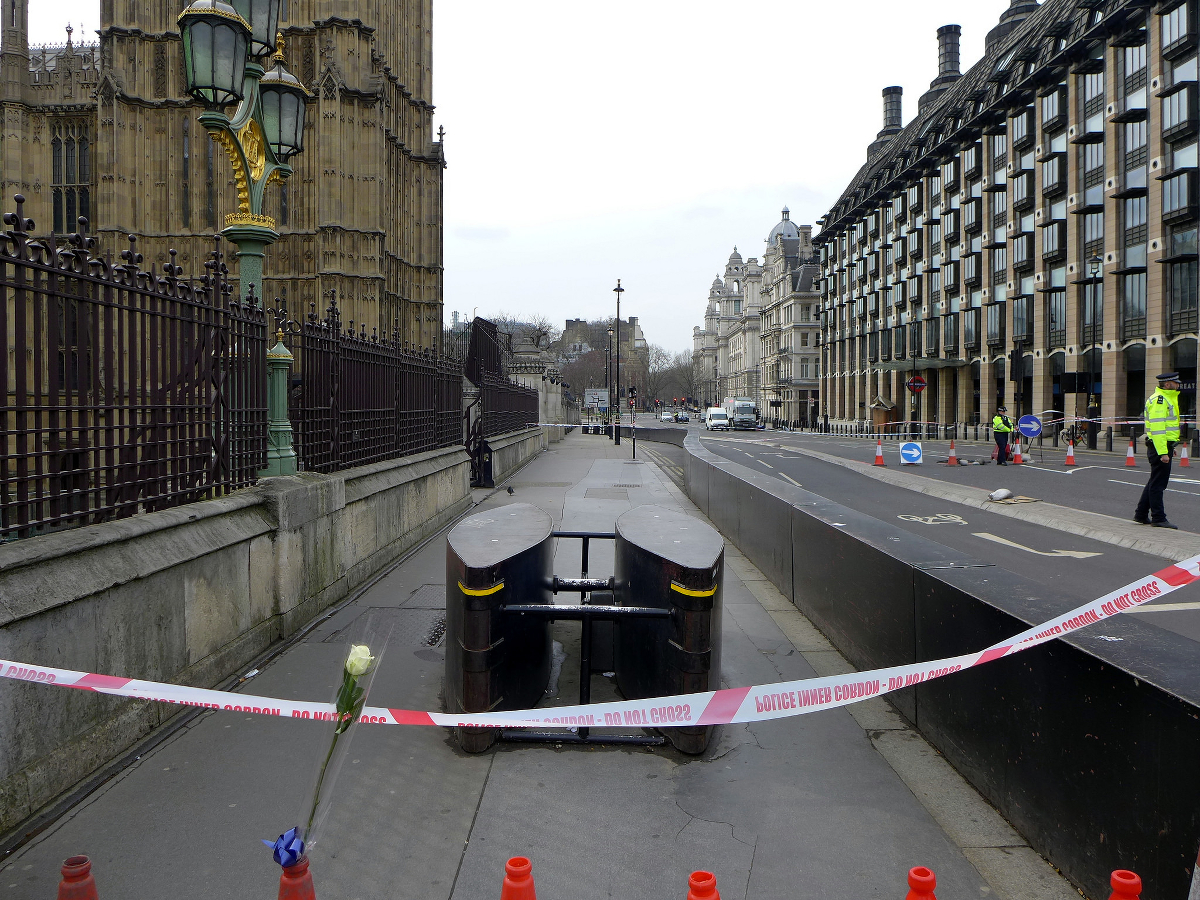On Wednesday afternoon, British-born Khalid Masood drove his car across Westminster Bridge in London, mowing down a group of pedestrians, before crashing into the gate at the side of the Houses of Parliament and stabbing a police officer. While most people ran from the danger, government minister Tobias Ellwood and passing ex-soldier Tony Davis ran to assist the policeman and fought to keep him alive. Doctors and nurses ran from a nearby hospital to help.
Meanwhile, an armed police officer shot the assailant.
Politicians, journalists and visitors to the Houses of Parliament were locked into the building as the attack unfolded and as investigations were carried out. The entire Westminster estate was locked down to maintain safety and security and to avoid the contamination of evidence.
Five dead
Police officer PC Keith Palmer, who was stabbed multiple times by Masood, died on Wednesday. Masood himself also died, as a result of the gunshot wounds inflicted by the police, along with Aysha Frade, a 43-year-old woman who worked at an educational college, and Kurt Cochran, an American citizen in London to celebrate his 25th wedding anniversary. His wife was also injured. On Friday morning, a further casualty passed away; Leslie Rhodes, aged 75.
The 40 people injured in the attacks came from 11 different countries, demonstrating the very multiculturalism that London boasts and celebrates in a terribly sad way. But London is tough. Londoners are tough.
So how did this happen?
Context
London – like the UK as a whole – is no stranger to terrorist attacks. Well into the 1990s, there was the constant threat of bombs by the northern Irish Republican IRA, and I saw the aftermath of many such attacks in the news as I grew up. We also saw the combined attacks of 7/7 in 2005, when tube trains and a bus were blown up, killing 56 people in total. Since then, parliamentarian Jo Cox was killed in the street.
Prior to all of this, the Second World War saw parts of the country, including many cities, flattened under constant bombing.
Put simply, Britain is used to fights being carried out on its own shores. It is frightening, and it is depressing, but it is not new and it is not, even, always shocking.
Brits assess the situation and see how they can carry on as normal, as Eddie Izzard explained back in the 90s:
I remember @EddieIzzard, as far back as 1993, joking about the way Londoners react with defiance to terror attacks pic.twitter.com/JqMAFEZgpf
— Kaya Burgess (@kayaburgess) March 23, 2017
Islamic terror?
Daesh has claimed responsibility for the attack, but there is no real way of knowing whether this is pure opportunism or whether Masood was in contact with the terrorist group. Either way, Masood’s assaults were quickly described as terrorism by the police and are still being treated as such. He has a Muslim name (having been given a different name at birth) and was a person of colour, so assumptions about his motives ran rampant.
Masood was born in the UK and was not a refugee or immigrant from another country. It is important to point this out in a probably vain bid to prevent this incident from stirring up even more hate against refugees, one of the most vulnerable groups on the globe.
The Westminster attack was perhaps an incident of Islamic terror. It was certainly, and incontrovertibly, an incident of extreme male violence. We do not know whether Masood worshipped Allah, or whether he had trained with Daesh. We do know that he was a man, and the perpetrators of the vast, vast majority of these attacks are men.
In fact, it is so common it is barely commented upon. Masood had a criminal record made up of a list of violent crimes, so all we really know about him is that he was a violent man. Sometimes that is motive enough.
Yet society, the right-wing in particular, is keen to look for reasons to back up its Islamophobic attitudes and justify its prejudice. Tommy Robinson, formerly of the racist English Defence League, managed to show up on camera shortly after the attacks; Nigel Farage spouted hate on the radio later that day; Katie Hopkins wrote for the Mail and spoke on American TV channel Fox News about how frightened and fragmented London now was. Even Donald Trump Junior weighed in, misquoting London Mayor Sadiq Khan in a bid to highlight the Mayor’s Islamic identity and stir up hate around him.

Walking around the fear
The following morning, MPs were packed into parliament to take back control and demonstrate that they did not have fear. They always were in one of the most protected buildings in the country and the police officer who died was there to protect them, which is what he did.
The rest of us carry on because we must, and because we don’t want to give in to fear or avoidance. Something terrible could happen tonight or not for another ten years, and predicting and planning around it is impossible. We try to trust in the flawed, flawed law enforcement and intelligence services and we hope that British Muslims do not suffer as a result of this one violent man.
Photo: ChiralJohn/Creative Commons

